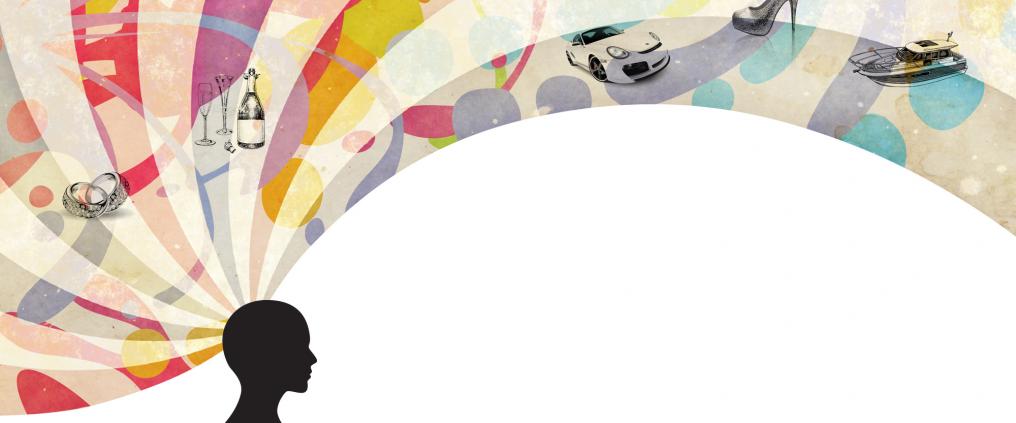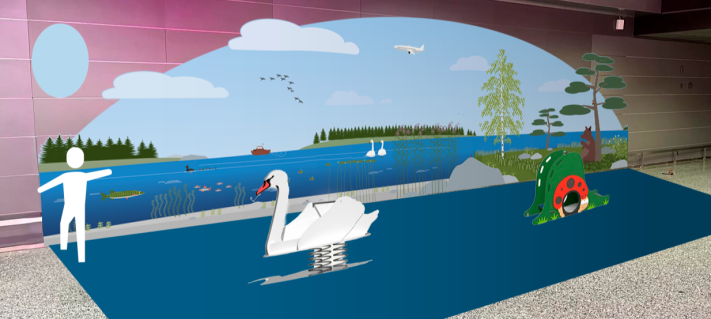‘I'm gonna break the cycle. I'm gonna shake up the system. I’m gonna destroy my ego’, sings Madonna in ‘Die Another Day’. In referring to destroying her ego, she points directly at something that is gaining more and more attention these days: the fact that, as we bustle here and there in a hurry, we often neglect to tend to chores in one location in particular – a place found not on a map but inside ourselves.
Many current trends in life management involve attempts to increase our awareness of the ego and id’s selfish desires. Efforts to raise our game to a higher level can be a good way to increase happiness. Just as travelling abroad can broaden our horizons, trips into our inner world, whether a ‘mind palace’ or an ‘ocean of calm’, can be highly significant.
Scientific advances and a balanced view
It is commonly believed that thoughts are born in the brain. But the brain – such a hot topic amidst today’s scientific advances – might not be the whole story. Science has found evidence that phenomena such as intuition may be associated not with the brain but, surprisingly, with the heart. This is not merely a poetic phrasing.
A relatively new field of science, neurocardiology, has demonstrated that the heart possesses its own functioning bundles of neurons, with their own memory. The heart reacts to external stimuli independently of the brain and central nervous system. With the information not passing through the brain, the process bypasses the conscious mind. This finding contributes to scientific work to explain instances of intuition.
Just as travelling abroad can broaden our horizons, trips into our inner world, whether a ‘mind palace’ or an ‘ocean of calm’, can be highly significant.
This is just one example illustrating the point of Finnish psychiatrist Ben Furman, who believes that we are starting to understand the power of the mind better than before. He provides a bit of history as background: ‘Many years ago, when hypnosis was being studied and developed, researchers were aware of the power of imagination and of the impact of mental images. But then these ideas were overshadowed by Sigmund Freud’s concepts, which stressed the importance of analysing the reason behind everything.’
Since then, explains Furman, the focus has begun to return to those ‘mental images’ and to how we can influence them. New trends have emerged, including solution-focused psychology, mindfulness, diverse relaxation techniques, visualisation, gratitude practice, and brain training.
The trick to seeing our mental images
Furman is convinced that our happiness is greatly dependent on what we think and imagine. ‘If you believe that everybody is against you, you will feel bad about yourself. If you believe instead that the world is on your side, you will feel great. Mental images can help you help yourself – or drive yourself against the wall.
One of the greatest barriers to improvement starting with the mind is that we always expect change to come from others, and also people often turn their attention first to clearly negative things rather than other issues.
Furman gives an example: ‘Many years ago, we used to run a summer university course entitled “How to Develop Myself”. When students' enthusiasm for the course started to wane, we decided to offer a new one: “How to Change Somebody Else”. It proved to be a very popular choice!’
Indeed, many are motivated to change others but not so much themselves. We readily see somebody else's behaviour as a problem but not our own.
In summary, Furman says: ‘Human beings are not as rational as we would like to believe; perhaps only one per cent of us are able to see our faults in a constructive way naturally. In this, we adults are like kids, just bigger.’
The medicine of the mind
Doctors are increasingly seeing the mind and body as a unified whole, in which the impact of the mind on physical health is obvious. Still, Finnish physician Antti Heikkilä thinks that modern medicine too often considers a person a machine that is first analysed and then prescribed medicines to correct the problem.
Heikkilä makes his point with a simple comparison with a computer: even this creation, much simpler than a human, is composed of both hardware and software. Experience has shown that most problems are caused by software, and the solution is to resolve the fault by reprogramming the software.
Similarly, when a person has problems, they generally cannot be truly corrected by fixing the hardware (using medicines). The alternative is ‘reprogramming’ the software, the mind. Heikkilä would like to wake people up to recognise the impact of their psyche on their health. He says that we shouldn't just wait for somebody in a white coat to come fix and heal us.
Text: Nina Pinjola
Illustration: Jaska Poikonen



